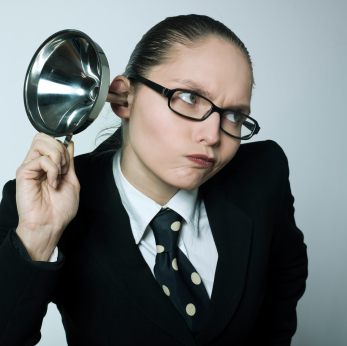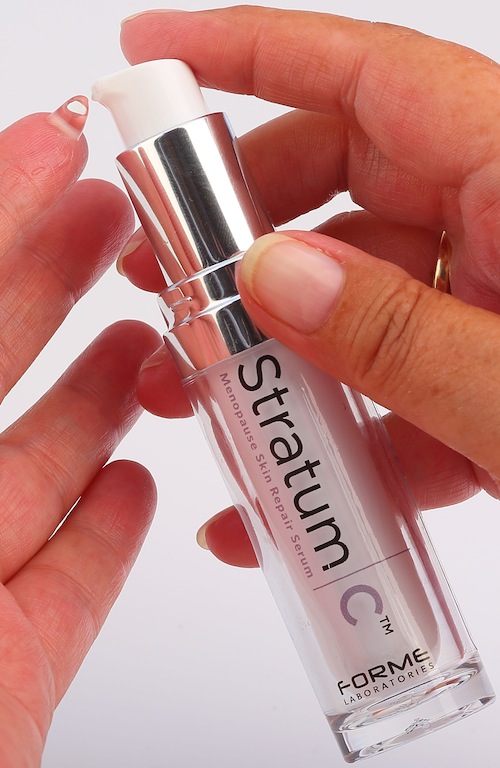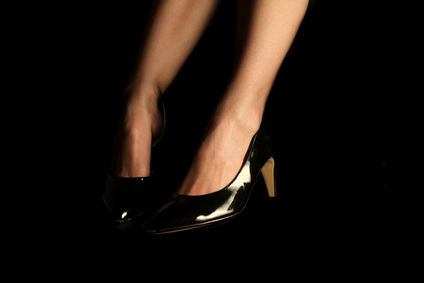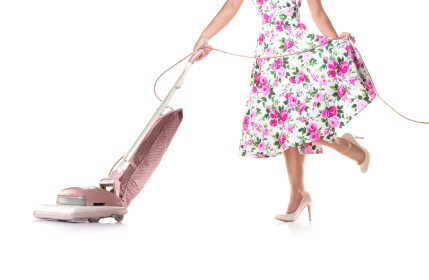Wednesday Bubble: Menopause Skin Cream Redux
 Did you catch Monday’s post about Stratum C and the promise of this unique cream and serum on menopause skin? A few hours after the post went live, I received an email from one of the company’s representatives who explained that the products were not only backed by published data but were priced accordingly:
Did you catch Monday’s post about Stratum C and the promise of this unique cream and serum on menopause skin? A few hours after the post went live, I received an email from one of the company’s representatives who explained that the products were not only backed by published data but were priced accordingly:
“The combination of peptides in the products is unique and includes the optimum strength needed to counteract the effects of menopause. Both products also contain high levels of hyaluronic acid and low aqua content (approximately 40% in the cream and 18% in the serum, which in comparison to most high street products is a lot less than the usual 90% aqua content). The price reflects how we have used high levels and only the highest quality ingredients.”
While I stand by my initial comments with regard to the low number of women on which the products have been tested, I am always willing to be challenged on my assumptions. Consequently, I’ve agreed to try Stratum C and see how it goes. I don’t anticipate that the environmental toll that my facial skin has taken will be reversed but hey, you never know, right?
Stay tuned. This story is only just beginning.
Read MoreThe promise of the menopause skin cream
Have you heard about Stratum C? Evidently, this wonder cream, formulated specifically for menopause skin, has been shown to relax facial muscles AND build collagen, while simultaneously moisturizing, promoting elasticity and providing a radiant glow. And, it has science to back it up, you know, an unpublished study conducted in a whopping 10 subjects.
Moreover, as the product restores that youthful glow that menopausal women so crave and erases signs of aging, it will only set you back $195. The thing is, to obtain the best results, evidently you need to use it from the start of menopause symptoms until the last symptom occurs. That’s an average of 10 years.
Want to know what’s in this magical cream?
“In addition to the collagen stimulating peptides Stratum C was formulated to contain Hyaluronic Acid to hydrate and moisturise the skin even into the lower levels of the dermis. Finally to combat existing wrinkles we included a muscle tightening ingredient that has been shown in clinical trials to reduce existing deep wrinkles by 45% in just one month.The base moisturiser in Stratum C is based on natural luxurious products well known to the beauty industry including Jojoba Oil, Seaweed and Apricot Oil the latter being a good source of Vitamin A and E which are also lost during the Menopause.”
In women in particular, aging is accompanied by a loss of estrogen, which has been linked with as great as a 30% loss of collagen in the dermis (the thick, sturdy layer of connective tissue that comprises about 90% of the skin’s thickness) within the first five years of menopause. Collagen, which is the most abundant protein in the body, is responsible for skin’s durability and strength. As it declines, skin starts to sag and wrinkles form. Oh, happy day!
There is absolutely no doubt that one of the peptides contained in this new cream and serum stimulates production of collagen and there are published studies demonstrating that. The question is, however, whether or not a cream or serum contains enough of the ingredient to perform the way that it claims to perform. And quite honestly, a majority of dermatologists will tell you that while a cream can help promote moisture and is necessary, it won’t reverse the ravages of environmental exposure built over the years. Estrogen, for example, has been shown to increase collagen, help the skin retain water and promote elasticity, yet its ability to reverse the effects of aging remain questionable.
I am all for looking as good as we possibly can at any age. A lot of that has to do with genes, sunscreen, diet and prior exposure. And I will be last person to judge someone who wants to drop a bunch of money on the promise of youth. Me? I’d rather save my dollars for something that is proven to work and until that happens, I’ll follow the directions of my dermatologist and preserve what I have got the best I can.
Buyer beware. This one sounds way too good to be true.
Read MoreHeels, harassment, tech and science. Oh, my…
I don’t know if you’ve been keeping your ears to the interwebz of late but there’s a helluvalot of harassment going on and it doesn’t seem to be getting any better. Roughly a week ago, all hell broke loose when writer Danielle Lee was called an urban whore for requesting payment when she was solicited for a guest blog post. Just prior to that, Writer Monica Byrne publicly named Scientific American Editor and Science Writers Online Conference Founder Bora Zivkovoc for sexual harassment. And this week, a woman attending a tech conference was publicly ridiculed for wearing heels, although the poster, startup entrepreneur Jorge Cortell, shielded his actions by claiming to be concerned for her foot health.
These examples are simply the tip of the iceberg. For years, I have watched as female colleagues trying to excel in the tech or science worlds come up against one barrier after another. They are ridiculed, harassed, disrespected and sometimes, downright hated by their male peers. In science conferences, women are often marginalized and excluded from speaker lists, not because they lack talent but because they are women. For example a recent Report in the Journal of Evolutionary Biology shows that only 16% of invited speakers at the European Society for Evolutionary Biology Congress between 2001 and 2011 were women. And we wonder why girls often choose liberal over science arts or math or tech.
When I posted the Atlantic article referenced above (heels and tech) on my Facebook page, an interesting conversation ensued; a friend challenged me to think outside my own box and asked where my bar is, that is the bar beyond which what is acceptable becomes downright wrong. The example he used was a woman posing provocatively in a short skintight, low cut dress and heels, which he asked me to comment on. And I did so, albeit privately.
My argument to him and to you is simple:
Choice and consequence.
I believe that it’s time for the double standard that is so pervasive in tech and science and in other disciplines to disappear. I believe that as women, we have choices to make and we have to live with the consequences of those choices. Rather than asking me to define what I mean by provocative and accuse me of being judgmental, understand that as a woman, I know the choices that women make to fit in, to stand out and to achieve. Sometimes, those choices are less than palatable to some and misread by others. And then the name calling and bad behavior starts, you know, the slut shaming.
Choice and consequence. It’s pretty simple.
If a woman makes a choice to wear heels to a conference, then it stands that the consequences are hers’ and hers’ alone. Will she lose her job if her heels are deemed inappropriate? Perhaps yes and perhaps no. Personally, I love nice shoes and boots and over time, I’ve come to appreciate heels more than ever. Is it foot forward (or back) healthy? Heck no. But I make a choice that I have to live with, whether or not that choice results in blisters, sore feet or heaven’s forbid, a cat call. I know why I am making that choice and to me, the interpretation that follows lies solely in the mind and eye of the beholder.
Perhaps I am lucky. In my work, much of which is male dominated, I’ve never been called out for my choice of footwear. The men I work with are much more interested in what I am saying and contributing to the conversation. I’ve never been accused of being a whore because I requested payment for access to my skills. And the cat calls as I walk down the street? Fortunately for me, those days are mostly over because I am pretty invisible; that’s what happens when you cross the magical line of 50 years of age. However, when they did occur, more often than not I thought that the issue lay with the person doing to cat calling; not with me.
I am concerned. I fear that we live in a time when sexual harassment is akin to milquetoast; it’s so common it’s not that interesting any longer. That is, until someone speaks up. And that someone, more oft than not, is then further accused of ruining a man’s [life, marriage, career, fill in the blank]. We have grown to expect that there will be weekly reports of a teenaged girl being gang raped and bullied, where a young celebrity will be ridiculed for behaving provocatively in a culture that has come to expect that provocation while the man can dance idly by and accept the affectations, we have become mute and dumb in ways unimaginable.
I’m stumped.
Choice. And consequence. It’s in our hands and our hands alone to do right by our young girls so that they grow up in a world where achievement is not frowned upon but celebrated for the sake of achievement, where she can feel comfortable in heels because they make her feel taller or more powerful or simply, pretty, or where tech geeks or scientists don’t assume that the ‘do not enter’ sign on the club door can be inadvertently applied at will.
What do you think?
Read More
Wednesday Bubble: What did you say?!
 When it comes to menopause, the old adage “the better to hear you with, m’dear’ no longer applies. In fact, if one is to believe study findings reported a few years back, women start to lose their hearing after the age of 50, which coincidentially corresponds fairly closely with menopause in the majority. It’s true that from a gender standpoint, we may have an ‘ear up’ compared to our male peers, who begin to suffer age related hearing loss as early as age 30. However, comparatively, it appears that women go through a relatively rapid decline in hearing starting with the loss of estrogen. Moreover, the study showed that over a 7 to 8 year time period, women who had only been in menopause less than four years had a greater than expected decline in their hearing, especially in their left ear while those in the ‘pause five to seven years had greater hearing loss in the right ear. This ‘yin/yang’ hearing tended to balance out and slow after 8 to 13 years.
When it comes to menopause, the old adage “the better to hear you with, m’dear’ no longer applies. In fact, if one is to believe study findings reported a few years back, women start to lose their hearing after the age of 50, which coincidentially corresponds fairly closely with menopause in the majority. It’s true that from a gender standpoint, we may have an ‘ear up’ compared to our male peers, who begin to suffer age related hearing loss as early as age 30. However, comparatively, it appears that women go through a relatively rapid decline in hearing starting with the loss of estrogen. Moreover, the study showed that over a 7 to 8 year time period, women who had only been in menopause less than four years had a greater than expected decline in their hearing, especially in their left ear while those in the ‘pause five to seven years had greater hearing loss in the right ear. This ‘yin/yang’ hearing tended to balance out and slow after 8 to 13 years.
Why does this matter, anyhow?
Well, hearing loss in the left ear is linked with a lower ability to hear sounds in the high frequency range and the extremely rapid loss of this attribute in the first few years of menopause ultimately affects women’s communication abilities. The Midwest Audiology Center in Greenfield WI explains it as follows:
In the English language, vowels are low frequency sounds that bring power to our speech, but contribute less to understanding. Consonants are more mid and high frequency sounds that bring understanding to our language. It is very common to lose high frequency hearing sensitivity at a greater amount than we lose our low frequency hearing sensitivity.
So, when we lose our ability to hear high frequencies, we know when someone is speaking to us but we can’t completely understand what they are saying.
A bit of a dilemma, don’t you think?
Importantly, this appears to occur without prexisting middle ear conditions or undue exposure to noise; in other words, estrogen the good queen turns into estrogen the wicked witch, wreaking havoc by taking away her protective powers. A bubble burst? You betcha.
I can’t offer any solutions at this juncture but I would imagine that the more we can protect our hearing now, the better we may be later in life. Turn down the volume before it turns on you!
Read MoreVacuuming for health?! You may want to rethink that paradigm…
Before you include housework in your weekly tally toward physical activity, you may want to pay close attention: UK researchers say that claiming housework as exercise may be a mistake. (No wonder, FitBit barely registers when I vacuum or dust!). And, while some of you might openly rejoice about the lack of a connection between health and housework (true confession: there is a part of me that is just tickled by this news), it’s important to recognize that in an effort to encourage sedentary individuals to incorporate some form of physical activity into their lives, there may have been a bit of overselling going on. Let’s face it; housekeeping is not going to propel you toward fitness competition medals.
A bit of background is in order. I’m not claiming that health departments have been engaging in deception in order to get people off their butts; promotion of domestic physical activity is linked, at least partially, to studies that provide evidence for a link between things like home maintenance and gardening, and a reduction in risk for death from multiple activities. And let’s face it: some activity is always better than none. However, findings from a survey of roughly 4,600 Irish adults demonstrate that not only do less than half meet current recommendations to engage in at least 150 minutes moderate to intense physical activity per week, but, among the 42% of individuals who do, domestic physical activity (i.e. housework, do it yourself projects, gardening, or other) accounts for anywhere from 11% to 73% of this activity. Among women in particular who exclude domestic activity, only 20% would meet current recommendations.
And the news gets worse: the researchers say that housework was inversely related to leanness, suggesting that people are either “overestimating the amount of moderate physical activity they do through housework, or are eating too much to compensate for the amount of activity undertaken.”
I say that it’s time to rebel against housework, take the streets and head straight to the gym! Forget the dusting; try a walk around the block instead! Vacuuming? No way; try a Zumba class!
Seriously though, health campaigns that are promoting domestic physical activity as curing that which ails the sedentary individual are doing us all a huge disfavour. Exercise often and exercise to burn calories, up your heart rate and break a sweat. Unless you are doing the IroningWoman Marathon, when it comes to housework and health, all bets are off!
Read More








